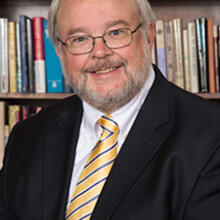The end of August brought differing images of American democracy. President Obama called on Congress to debate the use of military force against Syria, a consultation Congress had demanded but did not really want to face. They were unwilling to cut short their month-long recess to decide on an act of war. It was not an inspiring moment. (See my post “Washington and War” on America’s blog In All Things, 9/2.) On Aug. 28, a few days earlier, the anniversary of the March on Washington in 1963 recalled another crucial moment when people and politics came together to confront a different question: how to overcome our nation’s original sin of racism.
One advance in the commemorations was the powerful voices of women, which were missing in 1963. The starkest change was our African-American president speaking eloquently of the “great unfinished business” of poverty and inequality. For African-American marchers 50 years ago, the prospect of a black president named Barack Hussein Obama was as improbable as that of a Jesuit pope from Argentina named Francis would have been for Catholics in 1963.
Another difference was diminished religious language and leadership. The March in 1963 was as much pilgrimage as rally. The Rev. Dr. Martin Luther King Jr.’s sermon appealed to America’s soul and conscience. Seven of 15 speakers were leaders of religious groups working to make the march a success and the Civil Rights Act possible. I fear we may be losing this capacity to bring religious vision and moral principles to fundamental national choices. We may be trading a respectful pluralism for a dominant secularism, which insists faith is private and divisive. Powerful interests, narrow agendas and left- and right-wing individualism (“my choice, my rights”) dominate politics. Where will we find the ethical principles, vocabulary and values to make sacrifices for the common good, the next generation or the “least of these”? Would Dr. King’s call be too biblical, Christian and exclusive today?
Washington this September is not filled with powerful images but with confusion over responses to war crimes in Syria and human disaster in Egypt. Immigration reform may be slipping into 2014 or oblivion, as the House will not consider legislation approved by the Senate because even though it would likely pass, it would do so without the votes of most Republicans. Calls to shut down government over “Obamacare” mask the huge challenge of implementing the complex law Congress passed. The employer mandate, for example, has been waived for a year, but the Health and Human Services mandate will be enforced. Washington turns to 2016. Will Hillary run? Who leads Republicans: the warrior Ted Cruz or the pragmatist Chris Christie?
Martin Luther King’s unfinished agenda languishes. The Voting Rights Act needs repair after the U.S. Supreme Court struck down a key provision. Both parties need to confront the silence and stalemate on growing poverty, lack of decent work and wages and related erosion of family life. The progressive agenda seems to begin with same-sex marriage and resistance to any restraints on abortion. Where is the passion for economic and social justice of Dr. King? The right rejects a path to citizenship for immigrants and insists that cutting food stamps and taxes are roads to opportunity. Where is compassionate conservatism?
Where are religious leaders? In fairness, these marches were different. Al Sharpton is not Dr. King. The 1963 March did not feature abortion and same-sex marriage. Catholic leaders are struggling to be heard as they persistently work for human life and dignity, economic justice and immigration reform, religious freedom and peace. Parishes, charities, schools and individual Catholics are pursuing the dream every day. But we are too often distracted by partisan, ideological and ecclesiastical disputes. We need to renew the common commitment to justice that brought so many to march 50 years ago. We do not lack biblical mandates or Catholic principles but urgency and passion.
Pope Francis’ new leadership and example offer a way forward. He calls us to get out of ourselves and our ecclesial corners and into “the streets.” Pope Francis also has a dream, “a church which is poor and for the poor.” If we truly pursue Francis’ dream, it will help realize Dr. King’s dream as well.








